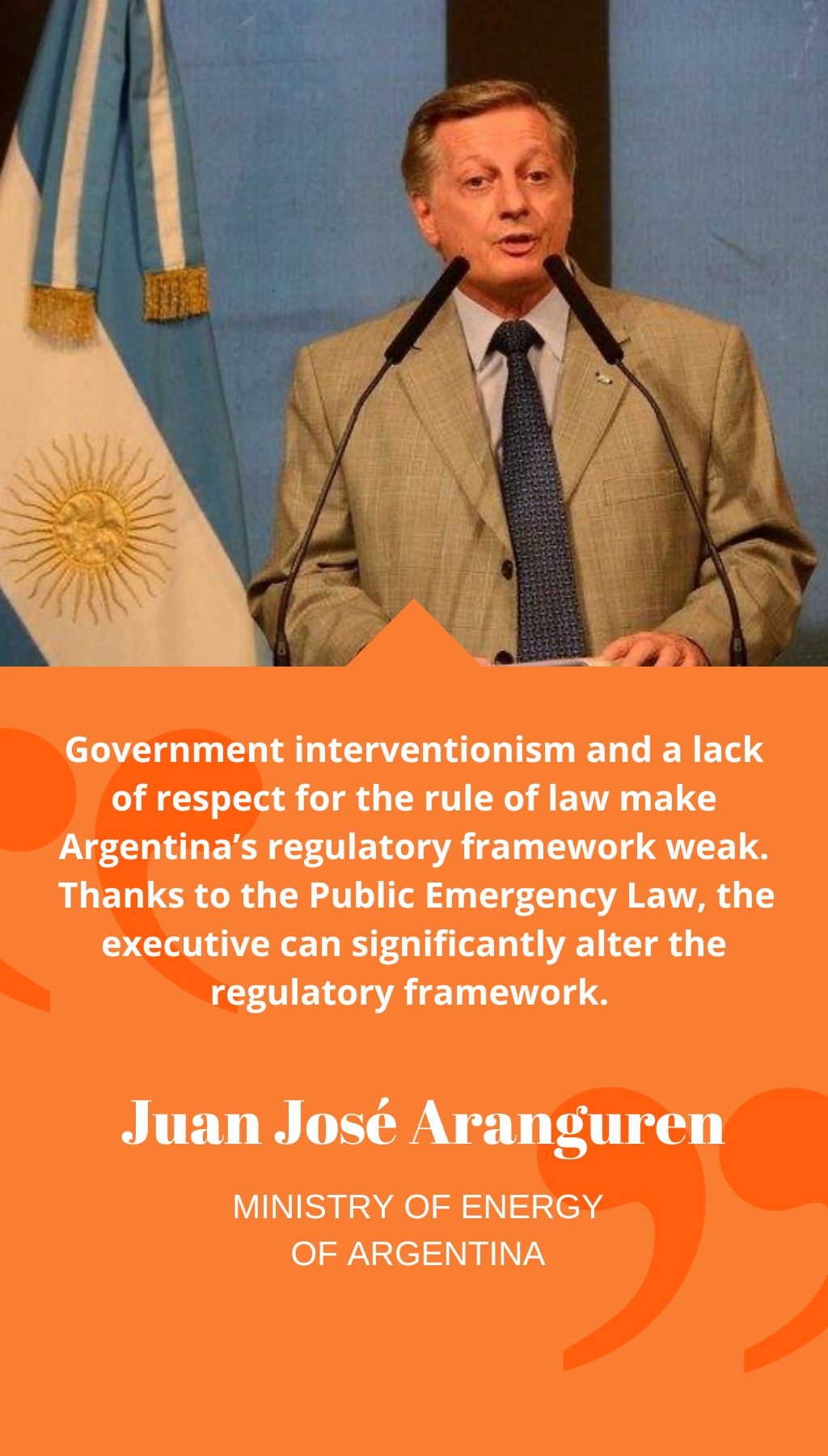
- Argentina | 29 August 2017

Can you provide an overview of your time at Shell?
Sure. I have been working at Shell for almost 37 years and have held various positions in Argentina, Australia, and the UK. I have worked in areas such as manufacturing, marketing, and supply and distribution. Since 2003, I have been the president of Shell Compañía Argentina de Petróleo S.A. (Shell Argentina). It has been a joy to work for 37 years at this wonderful company. Shell Argentina has shown the market that it is possible to operate in a difficult business environment while holding true to its business principles.
What kind of legal challenges do companies like Shell face in Argentina?
Companies like Shell face challenges where the executive branch sometimes oversteps its legal authority as regulated by Article 31 of the Argentinian Constitution. However, any company operating in any country is first obliged to fulfill its legal obligations. As soon as a company fulfills its obligations, it is in a position to defend its rights to operate in the country. Though Shell Argentina has faced what it considers unfounded legal challenges, Shell has always fulfilled its legal obligations and successfully defended its rights in the Argentinian judiciary.
Oil companies are prepared to operate in difficult business environments. In the different parts of the world, Shell operates despite security or environmental concerns; in Argentina, Shell has operated despite Argentinian government officials. Despite Argentina’s perception as a difficult business environment, we are still operating in the market because we have successfully defended our right to do so. In September 2014, we celebrated 100 years of continuous operations in Argentina.
To what extent do companies and the government respect the regulations governing oil and gas exploration?
At the moment, oil and gas regulations are merely words on paper. Government interventionism and a lack of respect for the rule of law make Argentina’s regulatory framework weak. Thanks to the Public Emergency Law, the executive can significantly alter the regulatory framework. Argentina has been subject to the Public Emergency Law, enacted to manage the abandonment of the peso’s peg to the dollar, since 2002. After 13 years, the law will continue until the end of 2015.
Prior to the amendment of the law governing hydrocarbon exploration and production (Hydrocarbons Law) on October 31, 2014, part of the law was blatantly ignored. Two articles of the original law stated that a company could only have five exploration permits and five exploitation concessions. At the time of the amendment of the Hydrocarbons Law, YPF had over 50 exploration permits and over 90 exploitation concessions.
How could Argentina’s oil and gas regulatory framework improve?
Argentina needs a regulatory framework that is respected by investors and the government, as well as a credible economy. Argentina can develop energy self-sufficiency by taking advantage of opportunities not just in the fossil fuel sector, but also in wind, solar, biomass, hydro, and nuclear energy. But to take advantage of these opportunities, we need to attract investors by establishing a legal framework that preserves judicial and tax stability. We also need to offer investors a credible economy with lower inflation rates, only one exchange rate, and no restrictions to capital flow.
What do you think about the re-nationalization of YPF in 2012?
Companies must abide by the rules of the countries they operate in, and the Argentinian Constitution allows for expropriations when the public interest is demonstrated. However, the government poorly managed the expropriation of Repsol’s interests in YPF. The government failed to pay Repsol for its assets prior to seizing them, making it more of a confiscation than an expropriation. It was only after negotiations and an agreement between the government and Repsol that the re-nationalization of YPF became legal. The government’s sudden turn against Repsol sent a bad message to the business community.
Despite the risks associated with operating in Argentina, why did Shell choose to invest in Vaca Muerta?
The main goal of an oil company is to convert resources into reserves. Shell decided to enter Vaca Muerta in 2012 because it would help Argentina develop its resources and produce the oil and natural gas needed to remain profitable. Before delivering a return to shareholders, an oil company needs to ensure that it has resources that can be turned into reserves. Although the regulatory framework in Argentina currently falls short of international standards, Shell believes that the opportunity to improve is present.














